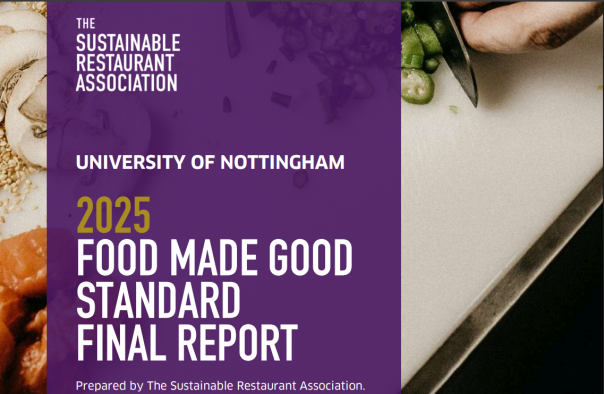
The rating was achieved as a result of efforts to improve in areas such sourcing, society, and environment, with specific actions including the reduction of both food waste and single-use plastics, together with the move to implement Menus of Change principles, and partnering with local organisations like Himmah, the local social justice organisation.
Amanda Pettingill, the university’s deputy director of estates & facilities catering, conferencing and hospitality director, said: “We are proud to share that the university has received three out of three stars.”
The head of the SRA’s global certification, Julia Holiday, said: “The Food Made Good Sustainability Rating provides a structured framework that assess all areas of sustainability within catering.
“It is the world’s largest sustainability certification, tailored for food and drink businesses. It evaluates sustainability across three pillars: sourcing, society, and environment. This holistic approach encourages continuous improvement to accelerate change towards a hospitality sector that is socially progressive and environmentally restorative.”
Pettingill added: “The University of Nottingham scored 72% overall, with a notable performance in the society pillar, reflecting our efforts to treat staff fairly. Other standouts were the Edible Campus Project, being part of Menus of Change, and the interactive sustainability programme Green Rewards. Our campuses offer healthy, sustainable food for our staff, students and visitors.
“We are committed to providing food choices that are good for you and the planet, with diverse menus and many vegetarian and vegan options. We also work with local and global suppliers to reduce the carbon footprint of our food operations. Our Sustainable Food Policy sets out the guiding principles we will use to embed sustainability within catering.”
The Food Made Good Standard is valid for two years and Nottingham University says it will ‘continue to push boundaries and improve practices’. Their scores were:
- Society pillar – 84%: The university scored highest in the Society Pillar. This reflects a wide range of initiatives from paying a living wage, to increasing desserts made in-house to control sugar content.
- Environment pillar – 78%: The university is actively working to reduce its environmental footprint. Initiatives in this area include establishing waste reduction targets, eliminating single-use items, and promoting reusable containers.
- Sourcing pillar – 59%: The university has made strides in sustainable sourcing, with half of the main courses being vegetarian or vegan.